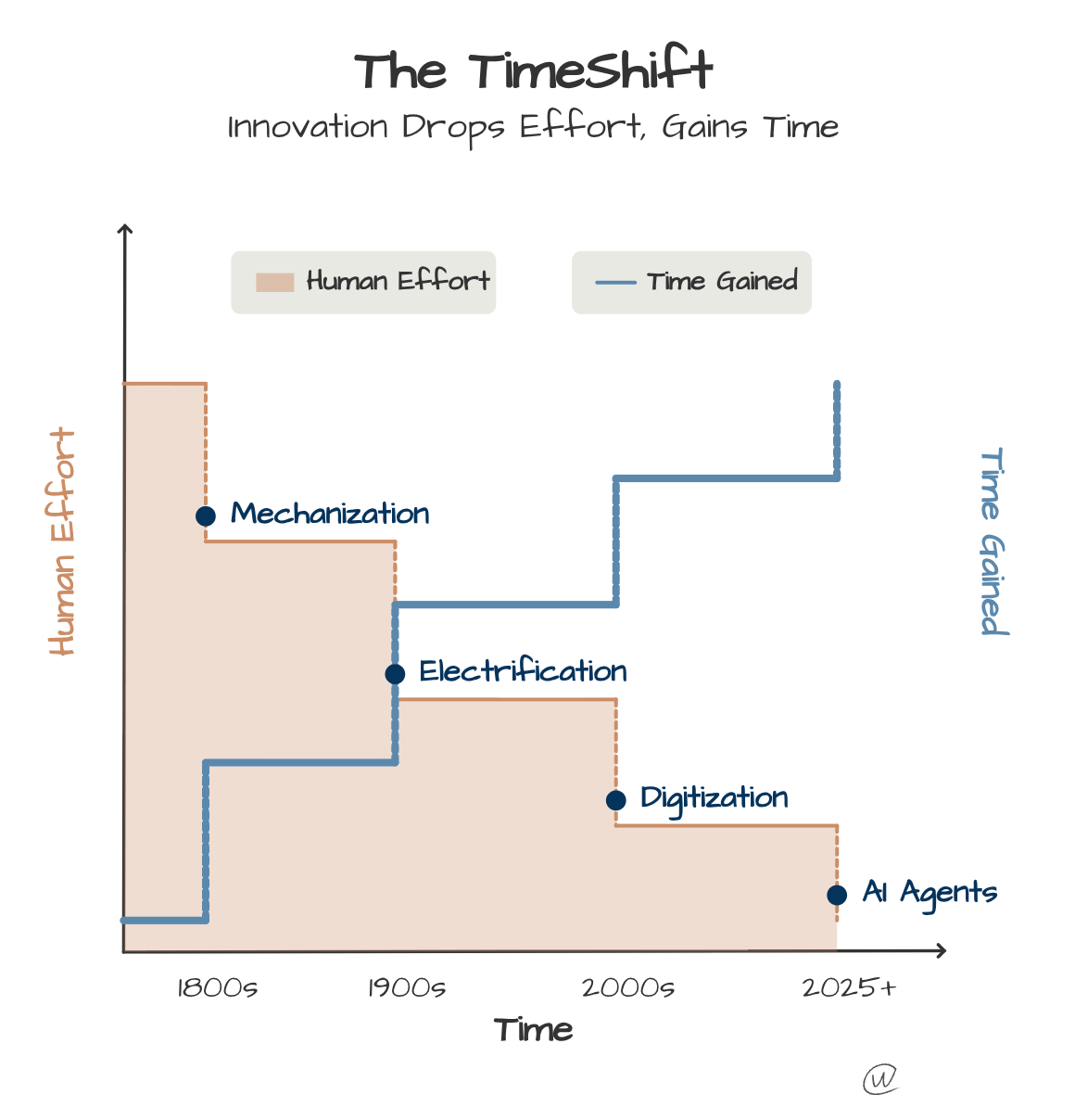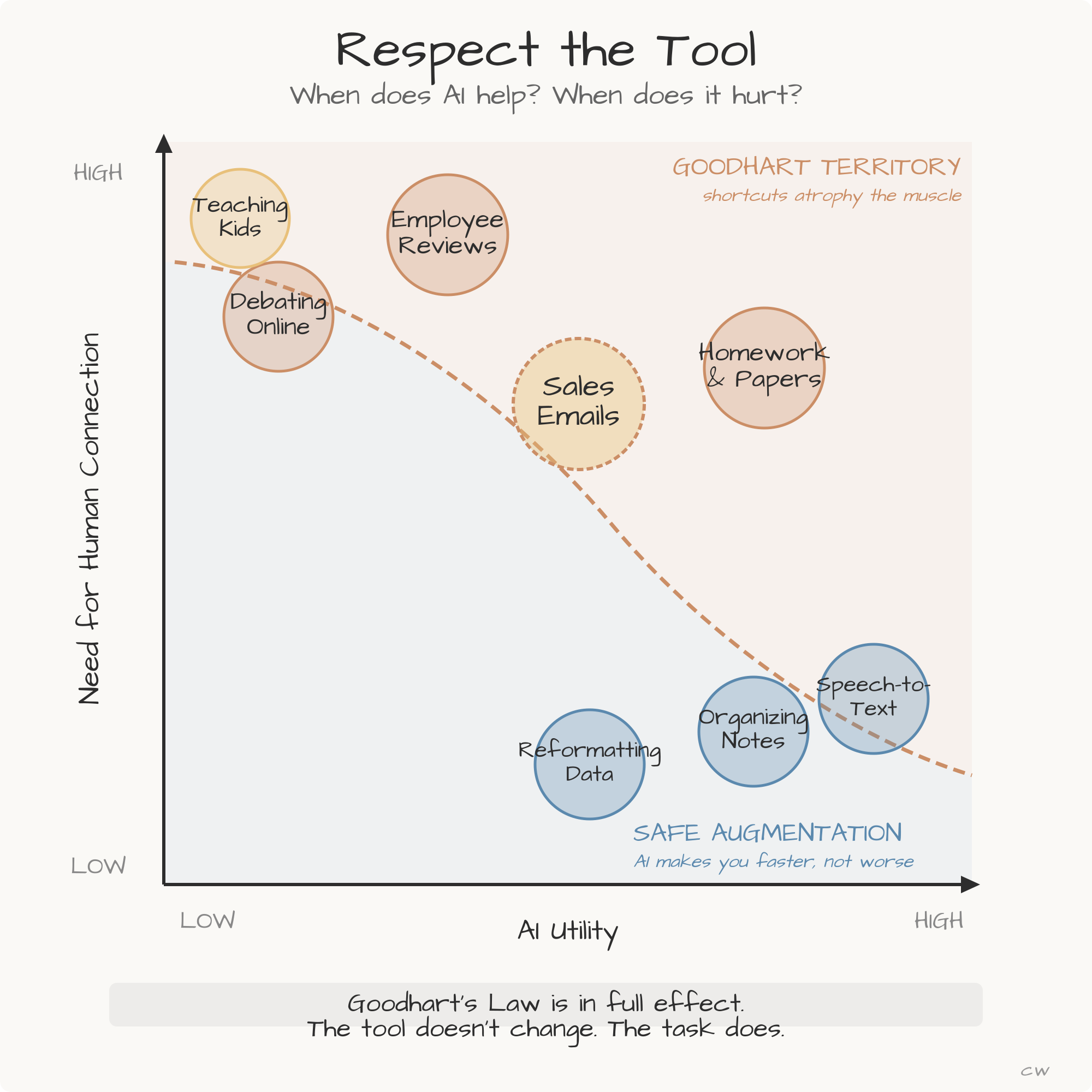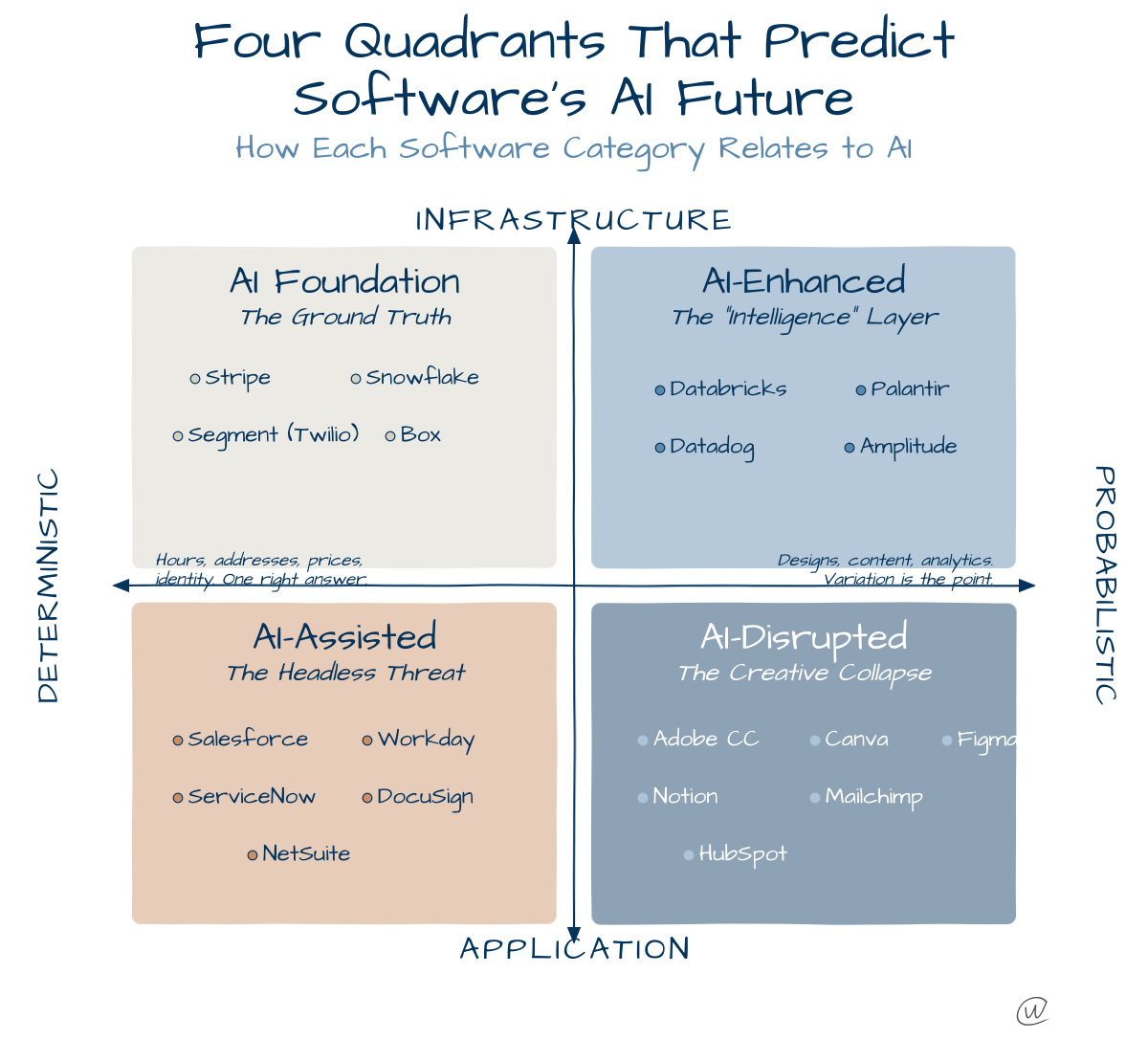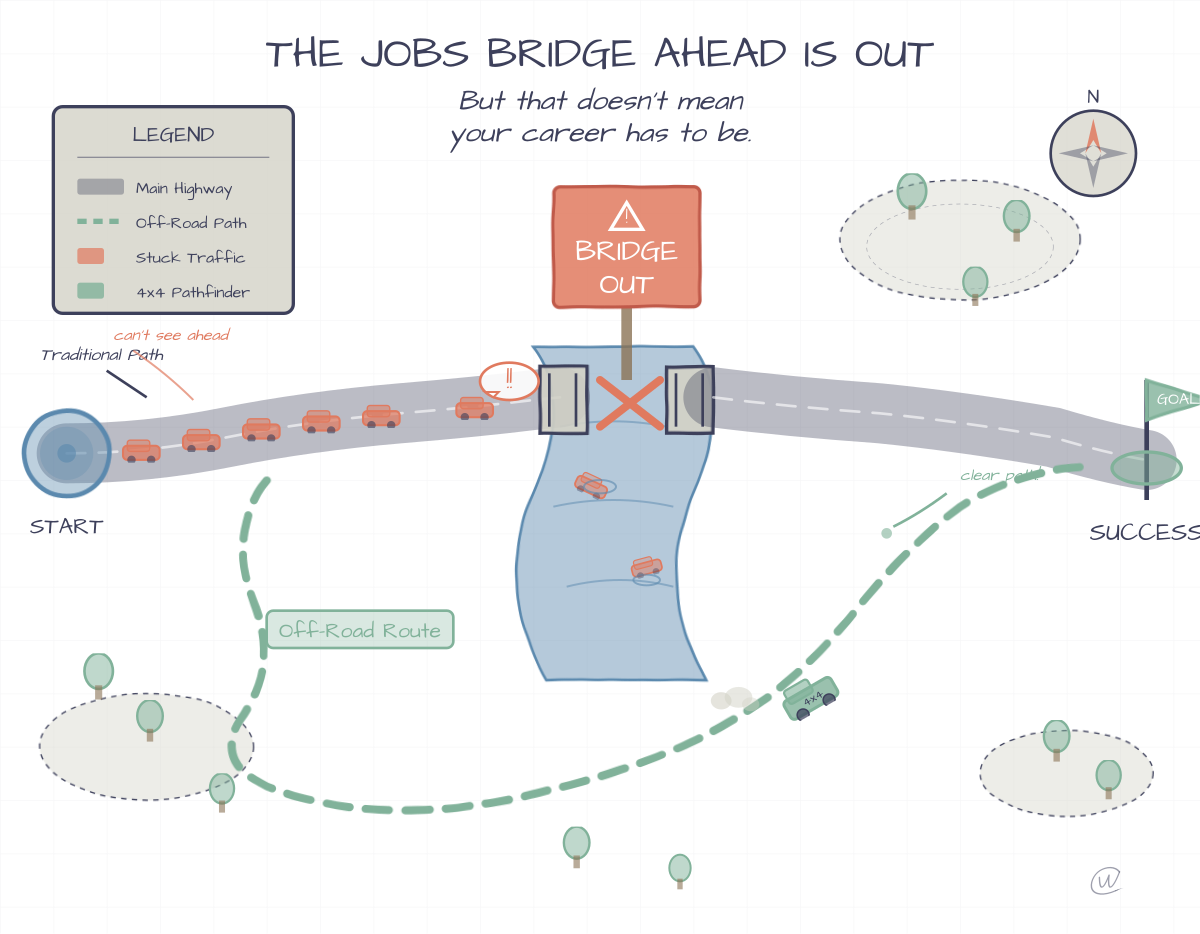It's Not the Age You Start, It's Just That You Start
AI is at the heart of two booms. Enterprise efficiency and entrepreneurial acceleration. It will be also be blamed for both.
Christian J. Ward
Nov 10, 2025
François Chollet, creator of Keras, put it plainly a few days ago.
"To really understand a concept, you have to 'invent' it yourself in some capacity. Understanding doesn't come from passive content consumption. It is always self-built. It is an active, high-agency, self-directed process of creating and debugging your own mental models."
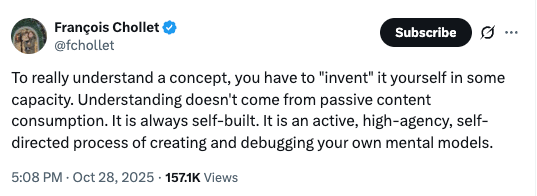
This guy is worth following.
I am seeing a new dichotomy in the market between AI and coding. And I also think it’s both an opportunity and a curse, depending on your approach to AI.
Essentially, with AI, it doesn't matter how old you are.
It doesn't matter how experienced you are. Whether you start at 27 or 50, you reach the same levels of capability very quickly because many of the esoteric programmatic limitations, data connectors, and structural limitations in developing code are being automatically implemented by AI.
Last weekend, following a session with Scott Murtaugh from GPA, I worked with Claude Code to refactor all of my processes. I was blown away by how much more I could do in just the three months since I hadn’t been using Claude Code.
Beyond that, I integrated writing, drawing, note-taking, editing, formatting, and social posting into thousands of lines of code without actually writing a single line.
(I will post soon on my process of “speaking” these posts into existence, but please know they are always my weekend walks, curating trends, while speaking with my Apple Watch recording and then AI as my assistant.)

Why AI Is Different From the Internet
AI is not as age or experience-limited as many remember the Internet to be.
With the Internet, young people seemed to just get it.
I recall my first “real” job in Institutional Sales and Investment Banking, which I held immediately after graduating from college. I could build entire prospecting lists for research and trading sales by using this incredible new platform called “Yahoo!”.
All of us youngins in the ‘90s flocked to it. And the companies that recognized the internet wasn’t a fad, hired scores of young developers. That youth soon became experienced in drastically complex infrastructure, code, and bureaucracy. For a while, being old meant you really didn’t understand the “interwebs”.
But AI is different. Senior engineers are adopting it as fast as their younger counterparts. And they have an enormous advantage in scaling themselves to where they do not need to hire as many young people (more on this later).
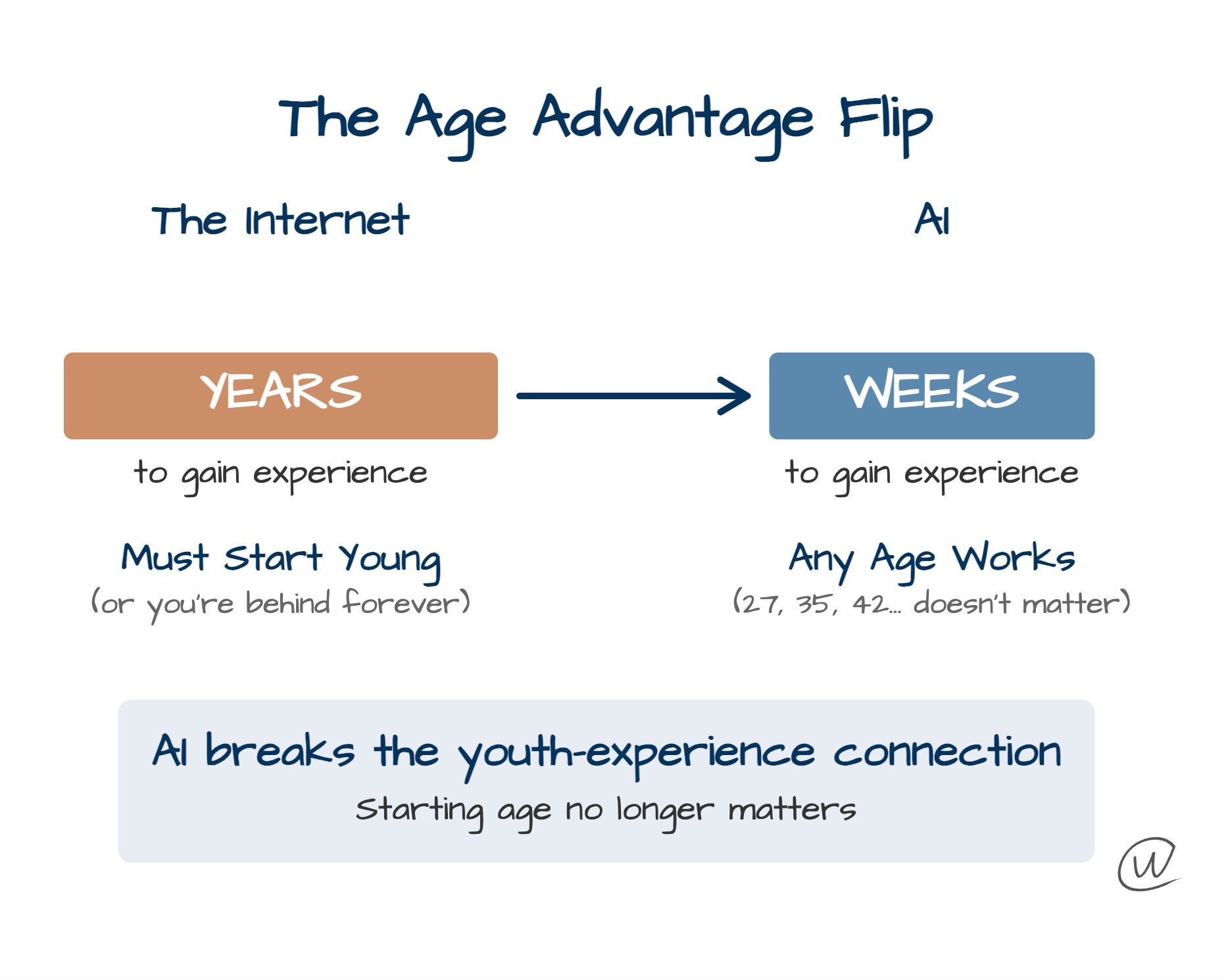
AI is age-agnostic.
This creates an interesting split. Senior engineers are content with maintaining the status quo, keeping everything working as it was. Young engineers embracing AI are building on their own and scaling very quickly to challenge the more senior incumbents and larger businesses by specializing.
It’s not a fad (like the internet was ⬇️.)
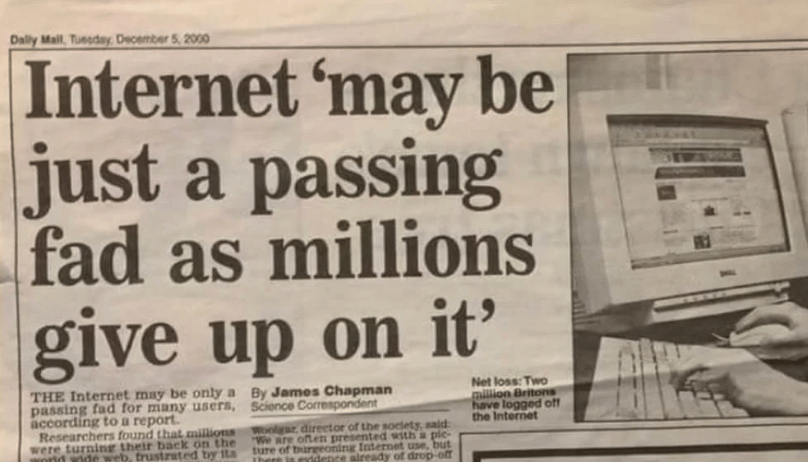
Sound familiar? You probably know some Idiots saying the same about AI.
AI is a very different cycle than many of the platform shifts we've seen over the years, mainly because it is empowering not by age, but by use. I discussed how I also think AI is a massive time-expansion, whereas the internet, largely, has time-collapsing properties.

The Numbers Tell the Dichotomy
Junior Developers Are Getting Crushed
Demand for junior developers is collapsing.
Entry-level tech hiring decreased 25% year-over-year in 2024
Tech-specific internship postings have dropped 30% since 2023
Computer engineering graduates face a 7.5% unemployment rate. Nearly double the 4.2% national average
70% of employers believe that AI can do the jobs of interns
37% say they'd rather "hire" AI than a recent graduate (okay, this one I kind of get.)
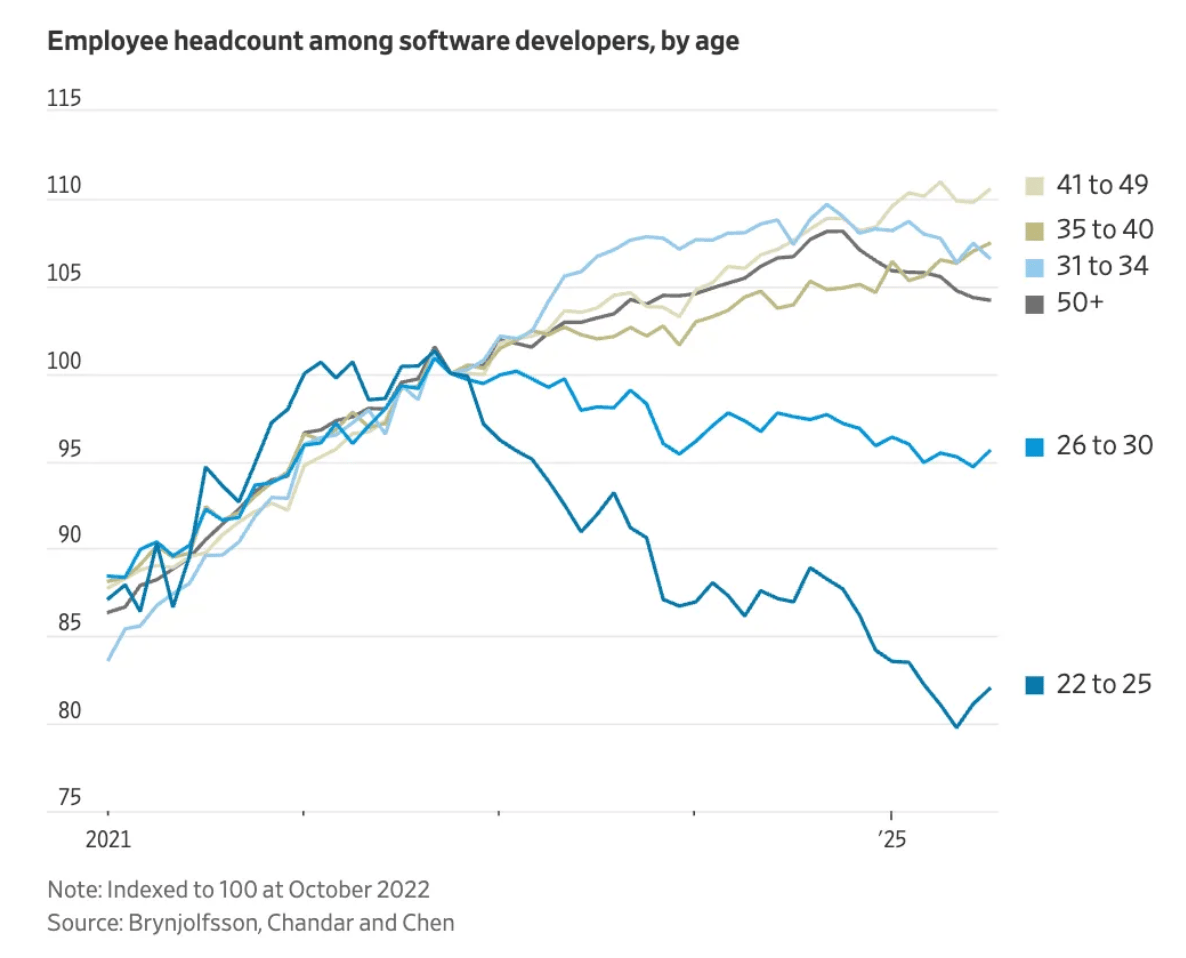
There’s also a birthrate crisis - but that’s another post.
A Stanford Digital Economy study found that employment for software developers aged 22-25 experienced a 13% relative decline from its late 2022 peak in the most AI-exposed occupations. Some specific roles dropped as much as 20%. For the youngest workers in AI-exposed jobs, employment fell 6%.
October 2025 saw 153,074 job cuts—the highest total for the month since 2003. Companies attributed 31,039 of these cuts directly to AI-related restructuring. The technology sector alone announced 33,281 cuts, six times the level of September.
And we all know about Amazon’s internal memos around cutting close to 30,000 jobs over the next several years, as AI does more.
Senior Engineers Are Scaling Up
The same Stanford study showed employment for workers aged 35-49 in AI-exposed jobs increased 9% while younger workers saw declines.
Senior engineers are using AI to do work that previously required hiring multiple junior developers. They have the domain knowledge, the architectural thinking, and the mental models that AI leverages. They scale themselves to where they do not need to hire as many young people.
Two Booms are Happening at Once
The layoffs and the lack of hiring are one side of the efficiency starting to show up. However, at the same time, you will see many young people enabling themselves in business, finance, technology, and marketing by leveraging AI in ways that scale them to the point where they no longer need it as a career path.
Boom One - Enterprise Efficiency
We're seeing a boom in enterprise efficiency from more senior people, including management, adopting AI. Technical leaders in established companies are restructuring teams, cutting headcount, and delivering more with fewer people. Management loves this. It hits the bottom line.
This is the layoff story. This is why junior hiring has collapsed.
Boom Two - Entrepreneurial Acceleration
We're also seeing a surge in the entrepreneurial spirit of young people, who are deciding to build their own ventures.
Young people with good ideas are using AI to build businesses without first becoming career programmers. They're scaling from concept to functional product in weeks, not months or years. They're finding niches and competing with established players by being faster and more focused.
These entrepreneurs aren't following the traditional path. They're not learning to code for years, getting hired as junior developers, working their way up, and then building their own ventures. They're skipping straight to building.
They might start at 27, 35, or 42. What matters is clarity of thought about the problem they're solving and the mental model they've built of their domain—finance, healthcare, marketing, logistics, or any other vertical.
AI is Also Blamed for Both Booms (In a Negative Way)
The enterprise story: "AI is taking jobs." True. Senior engineers using AI do work that previously required multiple people.
The entrepreneurial story: "AI is enabling new businesses." Also true. People are building products and companies that were previously impossible.
AI causes the disruption and enables both patterns. It gets blamed for the layoffs and the competitive pressure from new AI-enabled competitors.

The Most Important Thing - Just Start
The most important thing is not necessarily when you start. It's not the age you start, it's just that you start. And I recommend you all start.
(That means nights and weekends!)
Download Warp, Cursor, or any of these CLI-type platforms. (A CLI is a Command Line Interface. A text-based interface where you type commands to interact with your computer, rather than clicking through graphical menus. It's more powerful and direct once you learn the basics.) You should be installing Claude Code on it, which takes about three seconds. From there, you can talk to your computer in a way you can't fathom until you start actually doing it.

If you're young…
Stop waiting for someone to hire you. The traditional path of junior developer → mid-level → senior is being hollowed out from the bottom. Build something in a domain you understand, even as your side hustle, your parents' business, or a problem you see at your current job. Use AI to turn domain knowledge into working software. You'll learn more in three months of building than two years of hoping for an entry-level role that might not exist.
If you're experienced…
You already have the mental models. You understand how systems work, what customers need, and where processes break down. AI just removed the excuse that you can't build it yourself. Download Claude Code. Spend a weekend automating something you've been complaining about for years. You'll be shocked at how fast you go from idea to deployment.
What matters now is clarity of thought about problems worth solving, not years of experience or youth.
Just start.
